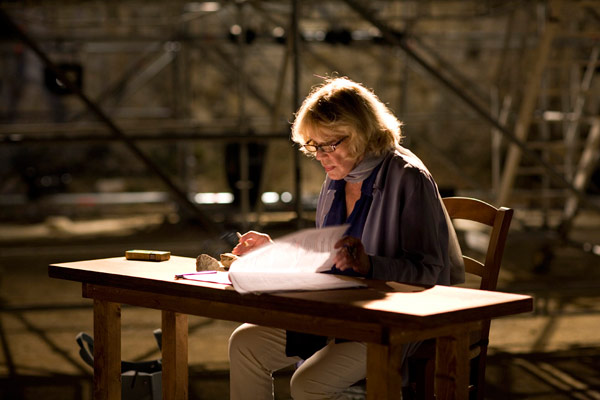La guerre des fils de la lumière contre les fils des ténèbres
Language: French
Duration: 24 minutes
Location: Avignon (Cloître Saint-Louis)
Participants / actors: Amos Gitai, meeting moderated by Antoine de Baecque
Copyright: theatre-contemporain.net / Festival d’Avignon
Added on 07/06/2009
Type: Avignon press conference
The War of the Jews is a documented account by historian Flavius Josephus on the capture of Jerusalem by the Roman Empire and the end of Jewish sovereignty in AD 70. Amos Gitai appreciates the meticulous work of reporting. , likes the tone, mixing story and history, the style, between epic and intimate description. For Flavius Josephus belongs to both camps. By his birth, his education and his battles, he came from a large Jewish family and led the war against Rome in Galilee. By necessity, he becomes Roman. Taken prisoner, left alive on condition of reporting the Roman triumphs, he endorsed a Latin surname and entered fully into the imperial culture. The Romans knew that in order to establish their supremacy they had to glorify the people they had conquered. Amos Gitai finds contemporary resonances in this text by making, in its reading, a dialogue between tradition and modernity. The filmmaker thus went to film, south of Jerusalem, the natural fortress of Masada, the last refuge of the Jewish patriots who preferred to kill themselves rather than become slaves. In another mineral universe, Boulbon’s career, like two mirrored spaces, the words also reverberate from echo to echo: they become songs, sounds, music, noises. They switch from one language to another – French, Hebrew, Yiddish, Arabic, English. They embody one power or the other, raising questions: who are the occupier and the occupied, the empire and its rebel, the legitimate and the outlaw, in a world where everyone now fights with a reversed front? Open to the sky and at full risk, The War of the Sons of Light against the Sons of Darkness constitutes an acoustic challenge, a spatial manifesto, a challenge of the game. It is the rock, as much as the voices, that sings to Boulbon; it is the movements and the images that occupy the space in this turf war; it is Jeanne Moreau who interprets this canticle of the stones and plays, alongside other actor-singers from different countries, the narrator of this historical tale. ADB it is Jeanne Moreau who interprets this canticle of the stones and plays, alongside other actor-singers from different countries, the narrator of this historical tale. ADB it is Jeanne Moreau who interprets this canticle of the stones and plays, alongside other actor-singers from different countries, the narrator of this historical tale. ADB

